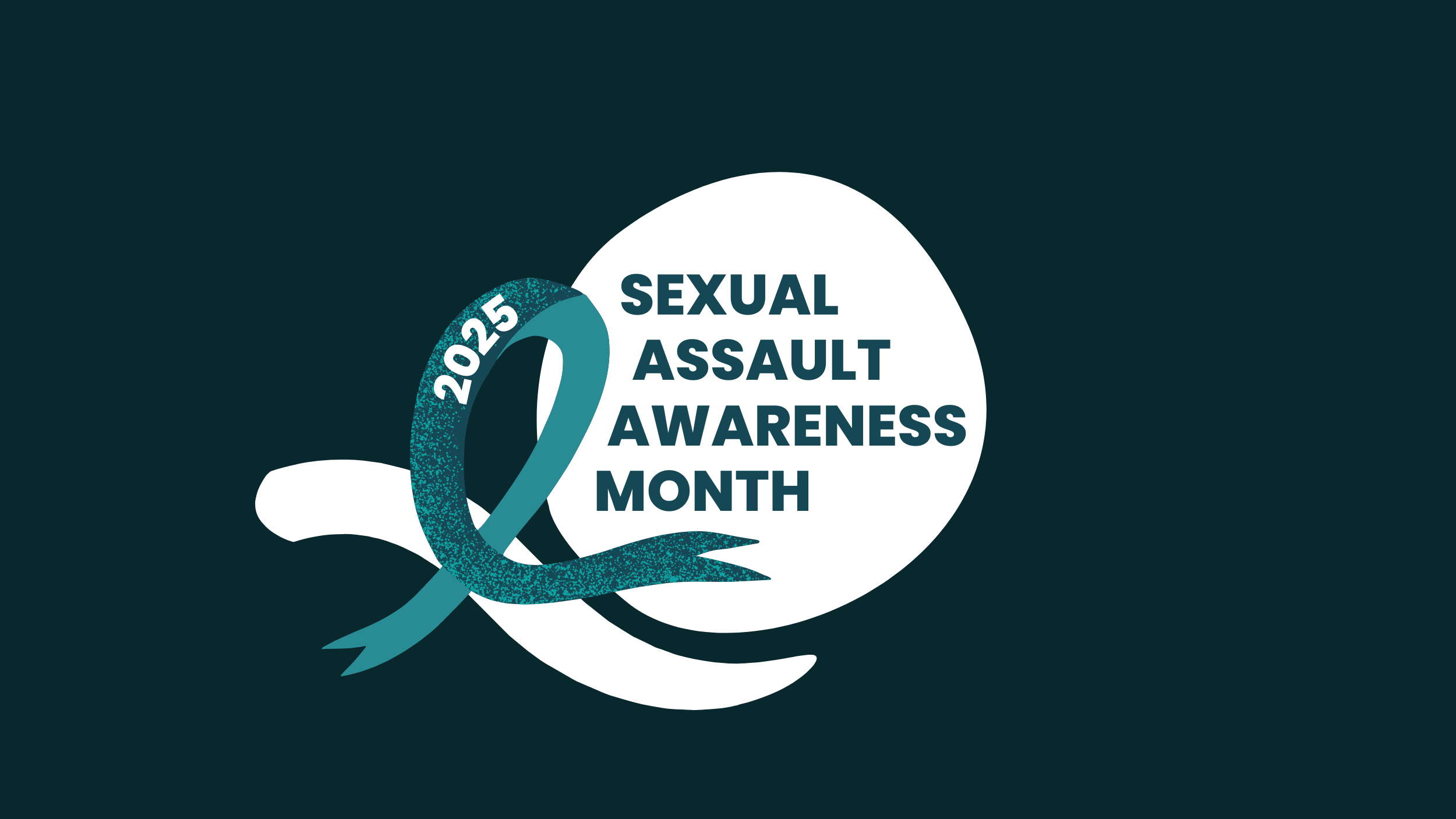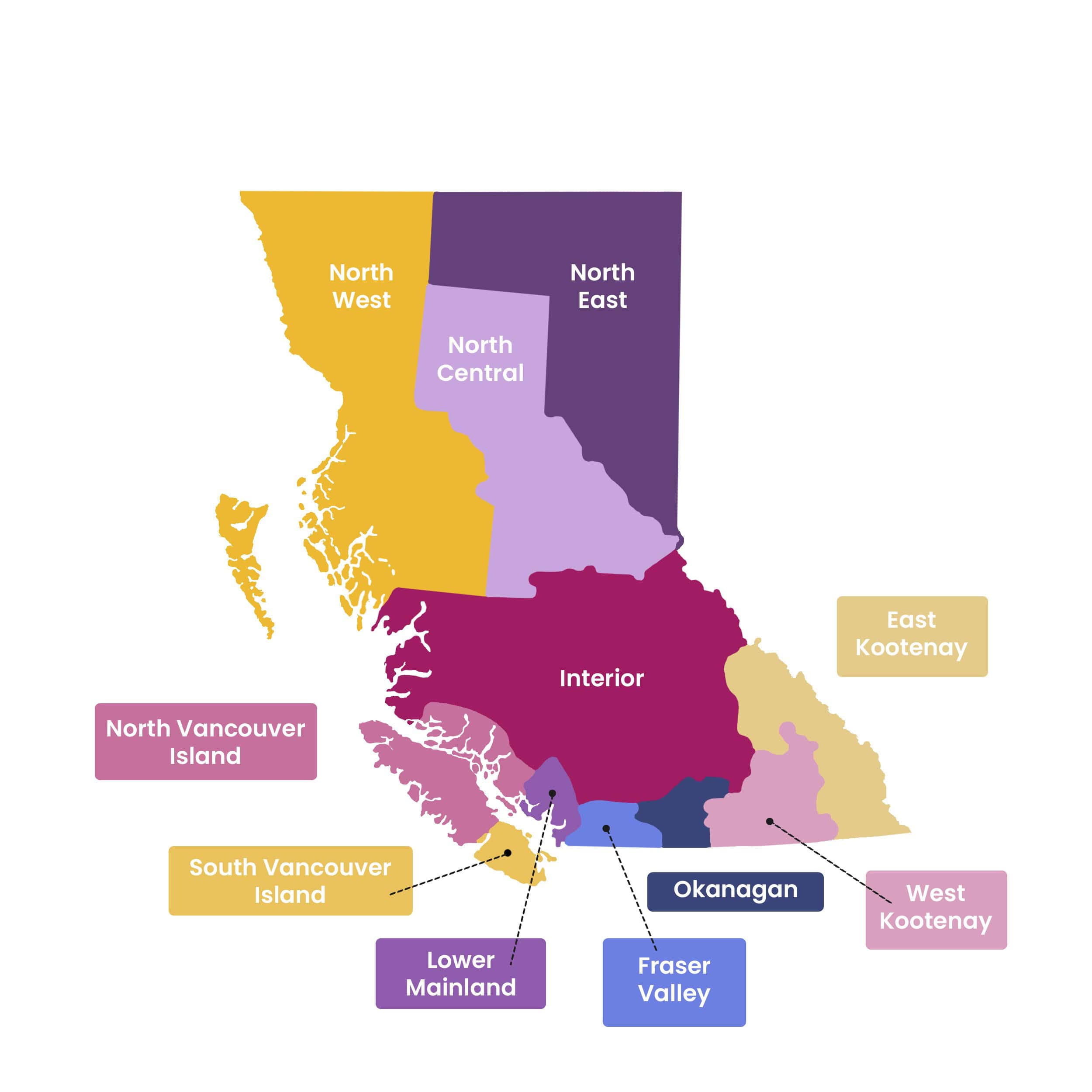April is Sexual Assault Awareness Month
The tradition of marking April as Sexual Assault Awareness Month began in the early 2000s with the National Sexual Violence Resource Center in the US. For this April, EVA BC is sending a letter to all MLAs in BC that asks them to support the creation of a provincial sexual assault policy to unite efforts in BC to respond to and prevent sexual assault and ensure greater equity and consistency for survivors. In each letter we’ve included a list of the MPSSG-funded frontline programs in the MLA’s community and encouraged them to help raise awareness of these supports for survivors. Here’s the main text of the letter:
April is Sexual Assault Awareness Month — your call to action
BC needs a provincial sexual assault policy
Rates of sexual assault in British Columbia and Canada have drastically increased. Between 2013 and 2023, our province saw yearly reported incidents of sexual assault jump from 2,707 to 4,458. The overall rate of sexual assault (level 1) in Canada increased by 51%, with sexual assault that included use of a weapon or bodily harm (level 2) increasing by 77% over the same period. In our country, 1 in 3 women experience sexual assault and roughly 4.7 million women have been sexually assaulted since age 15.
We know that only six percent of survivors of sexual assault (15 years of age or older) report the assault to the police. There can be many reasons for a survivor choosing not to report this crime: stigma, not being believed, being blamed, shame and lack of confidence in the policing and justice systems. In fact, of cases that are reported, very few lead to a guilty finding.
Although there are ongoing efforts to improve responses to sexual violence in BC, there is no policy that unites them. This leads to inequitable access to services and inconsistent responses to survivors. A unifying policy can make a difference. BC created the Violence Against Women in Relationship (VAWIR) policy in 1993, and it has been essential to integrating the work of those who respond to intimate partner violence across sectors. We need a similar provincial policy to streamline responses to sexual violence.
Across BC, survivors of sexual assault can access supports in the community, but not everyone knows how and where to find them. There is a wide range of provincial projects, efforts and initiatives aimed at increasing awareness and improving responses to sexual assault, and the province outlined commitments in, Safe and Supported: BC’s Gender-Based Violence Action Plan, but we need a provincial policy to unite these many efforts.
Current initiatives and policies on sexual violence in BC include:
- EVA BC and BC Women’s Hospital + Health Centre’s Changing Perceptions of Sexual Assault: Research Findings and Recommendations for Improving the Healthcare Response
- BC’s Ministry of Health has a Sexual Assault Forensic Exam (SAFE) policy, (not public), that guides the work of healthcare workers.
- Do survivors in your riding have a place to go locally for healthcare and to obtain a forensic exam if they need one? Most communities do not have access to these services when someone in their community is sexually assaulted.
- Do you know who provides these exams in your community? It may be doctors, nurses or a combination of the two.
- BC’s Sexual Violence and Misconduct Policy Act requires that all public post-secondary institutions establish a sexual violence and misconduct policy and procedures, with a focus on prevention and response. The legislation also stipulates that post-secondary institutions must publish their policies, review regularly and engage in consultation with students during the review process.
- New standards in BC’s provincial policing standards ensure survivors of sexual assault are better supported during sexual assault investigations, including a requirement to accept Third Party Reports.
- Beginning in 2021 the Employment Standards Act provides survivors of sexual violence five days of paid leave per calendar year to access health care, victim services, social services, legal services, and/or relocate.
- Beginning in May 2024, Dr. Kim Stanton started an independent systemic review of BC’s legal system’s treatment of intimate partner violence and sexual violence – recommendations from her review could help shape a sexual assault policy.
Although sexual assault happens frequently, it is entirely preventable. Your support in developing a provincial sexual assault policy would contribute to better supports for survivors and increased accountability for those choosing to commit violence.
A provincial policy would integrate and coordinate current efforts and improve responses in your local community and across BC. We ask that you commit to ensuring survivors of sexual assault in your community have access to the best support and resources possible.
Did you know?
- There are 70 funded Sexual Assault Services (SAS) programs across BC, including 22 Indigenous-centred programs, and five sexual assault centres. In addition to the SAS programs, there are close to 80 Community-Based Victim Services (CBVS) programs across BC that can also help a survivor of sexual assault. CBVS workers are trained to offer informed support and guidance to a survivor of sexual violence. You can see lists of these SAS and CBVS programs in EVA BC’s services directory.
- If a survivor doesn’t know what’s available in your community, they can reach out to VictimLink BC 24/7 for guidance in 240+ languages to direct them to the support they need.
- A survivor has the option to report a sexual assault anonymously to police (Third Party Report) through a trained anti-violence worker.
If any of this is news to you, it may also be news to people in your community and across BC. Please help us raise awareness of these resources and options in your community to support survivors.


